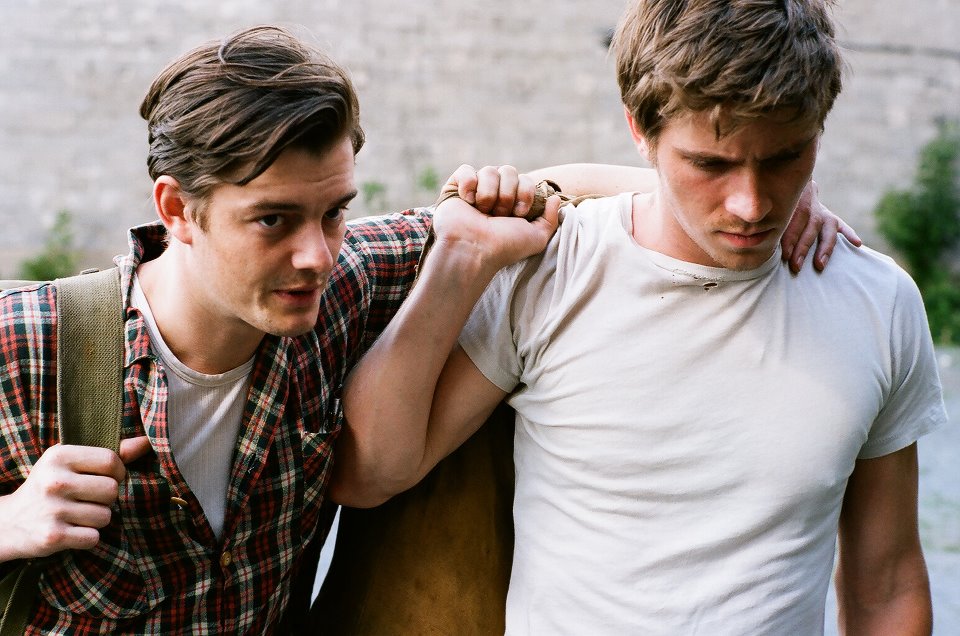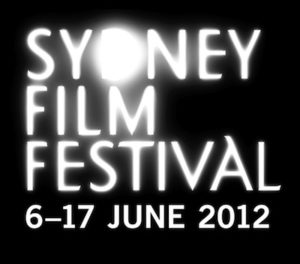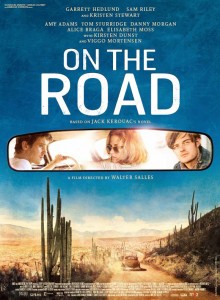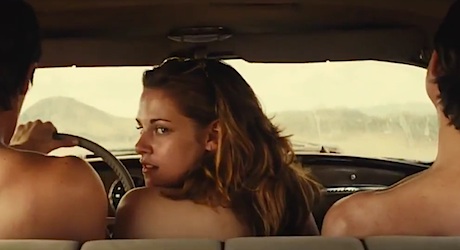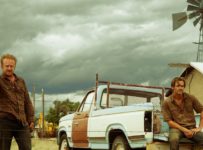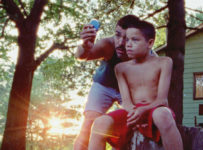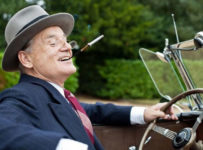Are we there yet? A classic American novel takes just as long to get going as it has getting to the screen.
[stextbox id=”grey” caption=”On the Road (2012)” float=”true” align=”right” width=”200″]
Director: Walter Salles
Writers: Jose Rivera
Runtime: 137 minutes
Starring: Sam Riley, Garrett Hedlund, Kristen Stewart, Kirsten Dunst, Viggo Mortensen, Amy Adams
Festival: Sydney Film Festival 2012
Distributor: Icon
Rating (?): Wait for the DVD/Blu-ray
[/stextbox]
As far back as 1957, author Jack Kerouac reportedly wrote a letter to actor Marlon Brando, suggesting his involvement in film adaptation of Kerouac’s largely autobiographical novel On the Road. While Brando never responded, perhaps due to Kerouac’s desire to play opposite the well-known actor, his concept was to shoot the film “with the camera on the front seat of the car showing the road (day and night) unwinding into the windshield, as Sal and Dean yak”. The film failed to eventuate, and following Francis Ford Coppola’s acquisition of the rights, decades were spent trying to realise the project that many thought was unfilmable. The Motorcycle Diaries director Walter Salles proves them all right.
A seminal text for a Beat Generation that was still discovering the likes of Allen Ginsberg and William Burroughs, Jose Rivera’s screenplay strives to remain faithful to the monotony of life on the road, and this is where its problems begin. Following the death of his father, Sal Paradise (Sam Riley) meets the charismatic wildcard Dean Moriarty (Garrett Hedlund). Yearning to be free of what they see as the prison of a domestic life, they begin several years of travelling across country, enjoying the benefits and downfalls of that freedom. Blowing in and out the lives around them, their many journeys always seem to return to two women: Marylou (Kristen Stewart) and Camille (Kirsten Dunst).
Adapting On the Road is like filming an abstraction or a poem: the structure might remain in some form, but all of the cadences and rhythms belong to another format. The monotony of Salles’ film might capture the isolation and the same nomadic spirit of Kerouac’s novel, but in order to do this in the abbreviated language of film, Salles has also sapped any of the life out of the piece. Taking on Kerouac’s form doesn’t necessarily equate to function, and this hampers any chances we do have of getting beneath the surface of its three main wastrels.
While the women play an important role in the tale, the focus is undoubtedly on the ‘important’ men in the world, and the ones who lit a fire under Paradise, and by extension Kerouac. Riley’s Sal Paradise sees the once promising actor as the American cousin of his Brighton Rock persona, and like the brawny Hedlund, carries an affected accent that borders on parody. Both men speak every line as though it was being dictated, recalling the same thin line James Franco walked in his portrayal of contemporary Allen Ginsberg (HOWL). Carlo Marx (Tom Sturridge) and Old Bull Lee (Viggo Mortensen), stand-ins for Ginsberg and William S. Burroughs, have more impact in their brief moments on screen. Amy Adams, as Lee’s junkie “wife”, and Steve Buscemi are delights, but like most of the supporting cast, are given little more to do than breeze in and out.
Much of the public attention will be focused on Kristen Stewart’s performance, building on her non-Twilight roles such as The Runaways, and her frequent nudity will keep Google in business for some years to come. However, she brings the same dull-eyed insincerity to Marylou as her more famous vampiric character, yet she is not solely to blame. Even Kirsten Dunst, saddled with a glorified cameo of a housewife role, is forced to simply exist alongside the travellers. At its best, On the Road brings with it the dust and sweaty closeness of the gypsy life, but more often than not runs out of gas before it reaches its destination.
On the Road played at the Sydney Film Festival in June 2012. It will be released in Australia on 4 October 2012 from Icon. It does not currently have a US release date.

